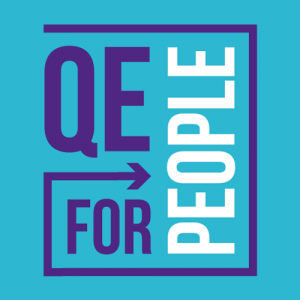 Right. Water is wet. Mud, muddy. Dirt, still dirty. In other news, when people don’t have money to buy things, people that make things aren’t able to sell things. This model is fully scalable to the global economy:
Right. Water is wet. Mud, muddy. Dirt, still dirty. In other news, when people don’t have money to buy things, people that make things aren’t able to sell things. This model is fully scalable to the global economy:
Think of an economy as a large network of individuals and firms who make and use things, interact and exchange with one another. Any party can, in principle, transact with any other, buying and selling, the only constraint being the budget of the buyer. Economists have studied network models of this sort — called random exchange economies — to explore how normal trading activity might (or might not) make an economy approach equilibrium.
Now some European physicists have used such a model to examine a different question: How does a significant change in inequality affect the overall level of exchange? Their study makes use of some fairly abstruse mathematics coming from physics, developed precisely for messy network problems of this kind. What they find is troubling, although not all that surprising — rising inequality tends to undermine exchange.
The reason is quite simple. As inequality gets more pronounced, a larger fraction of the population faces more stringent budget constraints, and the spectrum of possible economic interactions open to them narrows. Fewer people have the wherewithal to engage in economic activity. This mathematical economy actually demonstrates a sharp transition, akin to the abrupt freezing of a liquid, as the level of inequality exceeds a certain threshold. Worryingly, the wealth distribution in the U.S. over the past few decades has been moving ever closer to this critical edge.
When will it sink in that you don’t have to be a dirty socialist or believe that everyone should have exactly the same income (and color VW in the garage) to understand that beyond some point, income inequality becomes poison for the entire system. Capitalism can’t work without broad participation, without a diversity of exchange, without the possibility that people may rise into the sphere of [at least] middle class consumption. The 1% idea is not just rhetoric; it’s unhealthy economically as well as politically.
